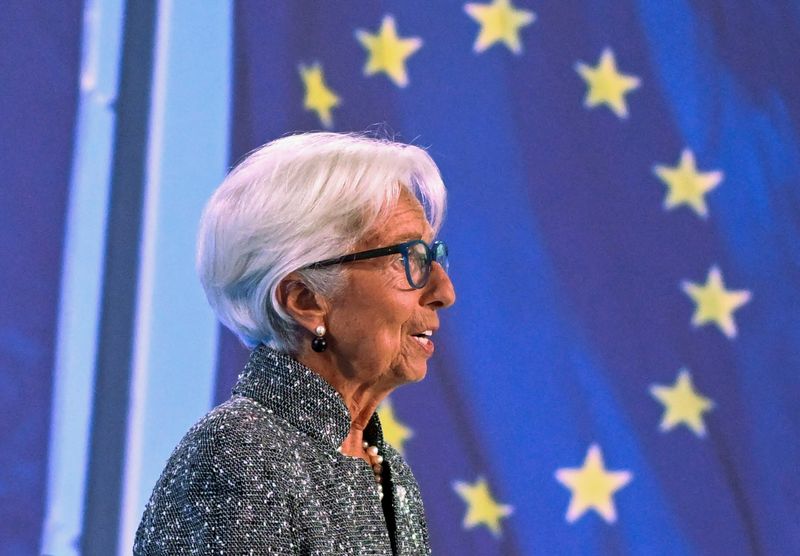FRANKFURT (Reuters) – Economic growth in the euro zone may be weaker in the coming months, with downside risks dominating in the medium term, European Central Bank President Christine Lagarde told a parliamentary hearing on Wednesday.
The eurozone economy has been stagnant for the past 18 months, and a long-delayed recovery is now threatened by political turmoil in France.
When asked whether the ECB would help France if market turbulence increased, Lagarde avoided a direct answer, but said financial stability was an important factor in price stability, the ECB’s main task.
“Price and financial stability are interconnected. Without one, you don’t have the other,” Lagarde told the European Parliament’s Economic and Monetary Affairs Committee in Brussels.
Lagarde said the ECB is “fixated” on its inflation mandate and has many tools at its disposal, including the Transmission Protection Instrument, which allows the bank to buy unlimited bonds from eurozone countries facing unwarranted and erratic increases in borrowing costs.
French borrowing costs have risen in recent weeks and a government collapse could push them up further, raising some questions among investors about the ECB’s potential role.
But France is unlikely to qualify for aid because market movements are neither disorderly nor unjustified, and France is under an excessive deficit procedure.
As for the broader economy, Lagarde said there would be weak growth in the near term and the outlook was uncertain going forward.
“Survey evidence suggests that growth will be weaker in the short term amid a slowdown in services sector growth and a prolonged contraction in manufacturing,” she said.
“However, the medium-term economic outlook is uncertain and dominated by downside risks,” Lagarde added. “Geopolitical risks are rising, with growing threats to international trade.”
Given the open nature of the bloc, trade barriers pose a threat to production and investment, Lagarde added.
Still, Lagarde said there could be some recovery ahead, driven by increased investment and consumer spending amid rising real incomes.
Inflation, hovering just above the ECB’s 2% target, may pick up in the final quarter of 2024 but then return to target next year, Lagarde said, reiterating her price guidance.

The ECB’s next meeting is on December 12, and economists overwhelmingly expect another 25 basis point rate cut, the fourth such move this year.
Lagarde largely played down those expectations, saying only that the bank would take a data-driven and meeting-by-meeting approach.





